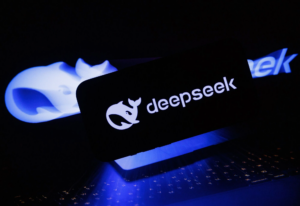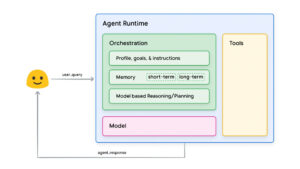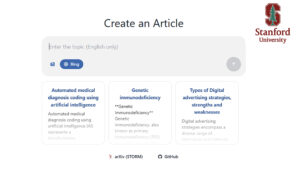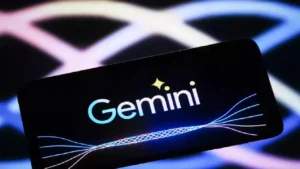Alibaba’s QwQ-32B-Preview: A Bold Challenger in the AI Arms Race
The competition among AI giants is intensifying as Alibaba steps onto the stage with QwQ-32B-Preview, a groundbreaking reasoning AI model that is already being positioned as a direct rival to OpenAI’s o1 series. With its formidable capabilities, semi-open accessibility, and a clear focus on complex reasoning, this new entrant could herald a transformative leap in artificial intelligence technology.
At the heart of QwQ-32B-Preview lies its impressive scale: 32.5 billion parameters. This sheer size gives the model the computational power to tackle intricate problems and nuanced reasoning tasks. Parameters, often likened to the “neurons” of an AI, are a fundamental measure of its problem-solving ability. By comparison, OpenAI has kept its parameter counts a closely guarded secret, leaving Alibaba’s transparent announcement as a bold statement of confidence in its technological sophistication.
A Model Built for Complex Inputs
One of QwQ-32B-Preview’s standout features is its ability to handle exceptionally large inputs, with a maximum token limit of 32,000 words. This capacity significantly outstrips many competing models, enabling it to process and respond to lengthy, intricate prompts with remarkable depth and precision. Such a feature is invaluable for applications requiring detailed analysis, such as legal documents, research papers, or large datasets.
Alibaba has conducted extensive internal testing to benchmark QwQ-32B-Preview against leading AI models. The results indicate a significant performance edge over OpenAI’s o1-preview and o1-mini models in key domains such as logical reasoning and mathematical problem-solving. The benchmarks, AIME and MATH, provide a clear glimpse into the model’s strengths:
- AIME (AI Model Evaluation): This benchmark evaluates performance through tasks designed by other AI systems, with a strong focus on logical reasoning.
- MATH: A collection of challenging word problems aimed at testing an AI’s ability to perform complex mathematical analyses.
In both benchmarks, QwQ-32B-Preview has demonstrated an impressive ability to solve logic puzzles and intricate mathematical problems, solidifying its position as a frontrunner in reasoning AI.
Strengths and Limitations: A Balanced View
While QwQ-32B-Preview excels in areas like logic and reasoning, it is not without its flaws. Alibaba has been upfront about its model’s limitations, reflecting a commitment to transparency that is often rare in the AI industry. According to Alibaba:
- The model may unexpectedly switch languages, creating potential confusion for users.
- It struggles with tasks that require common sense reasoning, a known challenge across many AI systems.
- It can occasionally become trapped in logical loops, which delay responses and hinder user experience.
Despite these shortcomings, QwQ-32B-Preview incorporates a unique feature that sets it apart: the ability to fact-check itself. By reasoning through tasks and planning its steps, the model mitigates some of the errors common in traditional AI systems. However, this self-checking mechanism comes at a cost—extra processing time. This trade-off may limit its viability in real-time applications but enhances its reliability for tasks where accuracy is paramount.
Navigating Cultural and Regulatory Challenges
The development of QwQ-32B-Preview has been shaped not only by technical considerations but also by its cultural and regulatory context. As a product of China, the model adheres to local standards and reflects "core socialist values," ensuring compliance with government regulations. This adherence manifests in its handling of politically sensitive topics:
- On contentious issues such as Taiwan, the model’s responses align with the Chinese government’s stance.
- Prompts related to events like Tiananmen Square elicit non-responses, showcasing its cautious design to avoid controversy.
While this approach ensures the model’s suitability for Chinese markets, it may hinder its global appeal. Users in regions with differing political perspectives or priorities may find such constraints limiting.
The Semi-Open Model: Apache 2.0 Licensing
Alibaba has positioned QwQ-32B-Preview as a semi-open model, released under the permissive Apache 2.0 license. This license allows for commercial use, making the model accessible to businesses and developers. However, not all components of the system are available for public scrutiny, placing it somewhere between fully open-source systems and proprietary models like those of OpenAI.
For researchers and developers, the model’s semi-openness offers both opportunities and challenges. While it provides a foundation for experimentation and application development, the limited transparency restricts deeper exploration of its architecture and functioning.
A Shift in AI Development Strategies
QwQ-32B-Preview’s debut comes at a pivotal moment in the evolution of artificial intelligence. Traditional approaches to improving AI models, such as scaling up data and computational resources, are facing diminishing returns. As a result, AI labs are exploring alternative strategies, with test-time compute emerging as a promising technique.
Test-time compute, the methodology underpinning reasoning models like QwQ-32B-Preview, allows AI systems to allocate extra processing time during tasks. This approach enables more sophisticated problem-solving but sacrifices speed, highlighting the trade-offs inherent in pushing the boundaries of reasoning capabilities.
The Global AI Arms Race
Alibaba’s release of QwQ-32B-Preview is emblematic of a broader surge in AI development worldwide. Major players are doubling down on reasoning models, signaling a new frontier in artificial intelligence:
- Google: Reportedly expanding its reasoning-focused AI team to 200 engineers and committing substantial resources to advance this technology.
- DeepSeek: Another Chinese competitor actively developing reasoning-oriented AI systems to challenge industry leaders.
With reasoning models like QwQ-32B-Preview at the forefront, the industry’s focus is shifting from sheer size and scale to more nuanced capabilities, such as logic, planning, and adaptability.
The Road Ahead
Alibaba’s QwQ-32B-Preview represents a bold step forward in the rapidly evolving field of reasoning AI. Its combination of advanced logic capabilities, semi-open accessibility, and transparent benchmarking positions it as a formidable competitor to established players like OpenAI. However, its limitations, such as cultural tailoring and slower processing speeds, highlight the challenges of balancing innovation with practical application.
As the race to refine reasoning technologies accelerates, models like QwQ-32B-Preview offer a glimpse into the potential—and the hurdles—of this emerging frontier. Whether it becomes a global benchmark or remains a regional powerhouse, one thing is certain: the reasoning AI era has only just begun.

















































































































Validate your login
Sign In
Create New Account